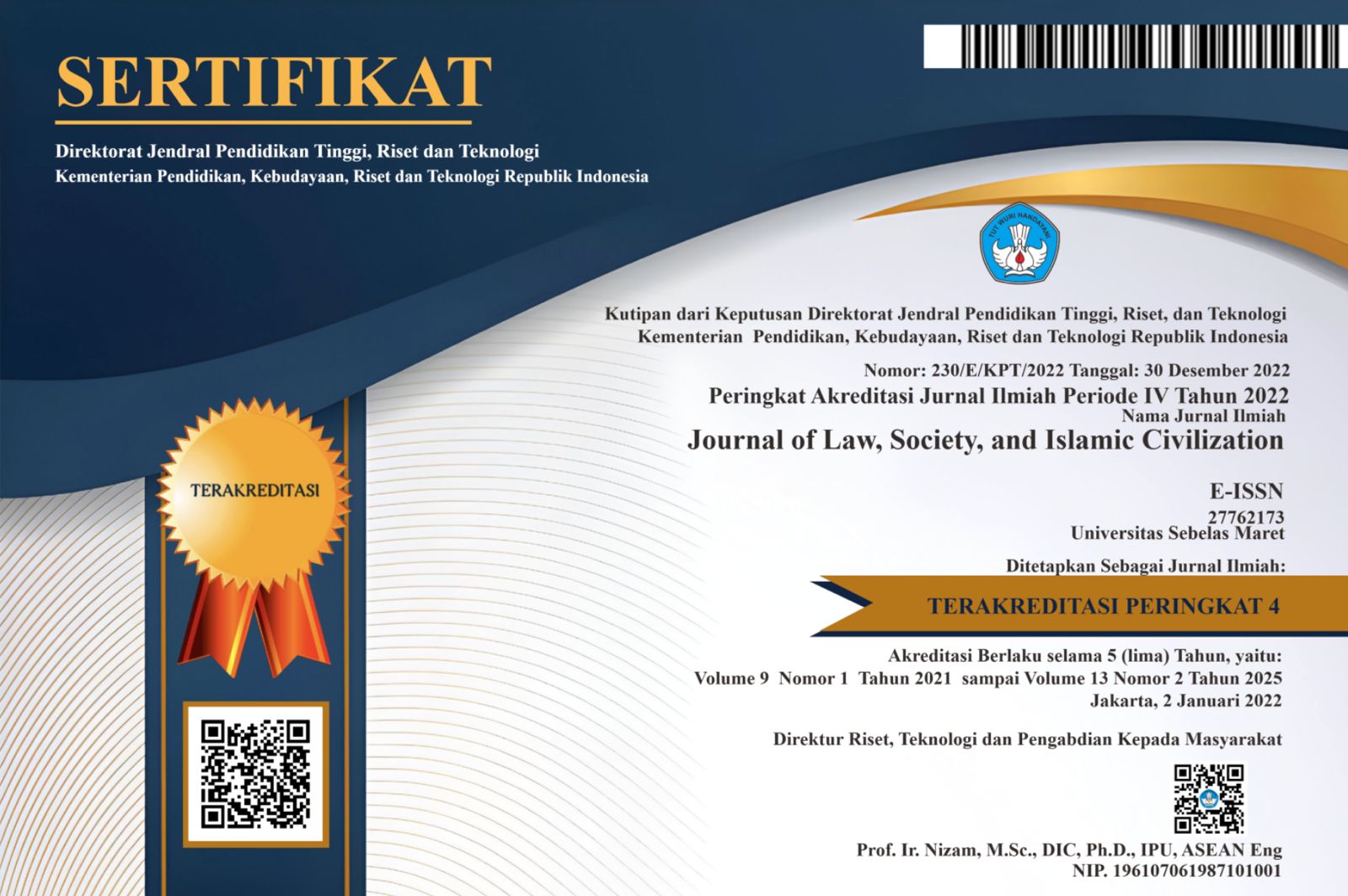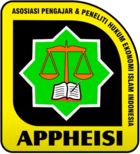Legal Politics of Zakat Empowerment in Indonesia (Dialectics of Islamic Fiqh Norms with Indonesian National Legal Policy)
Abstract
This paper intends to reconstruct the shari'ah of zakat by opening the dialectic of shari'ah norms (fiqh) of zakat by optimizing the role of the Indonesian state in its law enforcement. Ushuly (philosophical) reasoning, especially the Maqashid as-Shari'ah approach, has an important role in this study, so as to produce a political solution to sharia law that is more empowering for efforts to realize Islam rahmatan lil'alamin. This research uses qualitative method with the object of analysis is the views of scholars who are concerned with fiqh zakat. The ideas they express, whether in the form of seminar papers, books, opinions, or others, will be used as primary data. The data that has been collected will be analyzed using discourse analysis, which emphasizes the elements of text, context and discourse. In this research, it is found that the effort to empower the sharia of zakat as an instrument to realize the welfare of Muslims has undergone various evolutions in its implementation in various regions of Muslim countries through ijtihad efforts both istinbathy (interpretative) and tathbiqy (applicative), as well as historical and philosophical studies, while still paying attention to the principles and normative provisions of fiqh in order to achieve the purpose of institutionalizing Islamic law (al maqashid ash-syari'ah).
Keywords
Full Text:
PDFReferences
Ulwan, A., N. (1985). Zakat dalam Empat Mazhab (terj. Didin Hafidhuddin). Jakarta: Pustaka Litera Antar Nusa.
Afif, M. (2020). Fungsi Masjid Dalam Mengelola Dana Ziswah Sebagai Instrumen Pemberdayaan Ekonomi Umat. Journal of Islamic Economics and Philanthropy, 2(4), 749-772.
Ali, M. D. (1998). Sistem Ekonomi Islam Zakat dan Wakaf. Jakarta: UI Press.
Baladina, N. (2012). Membangun Konsep Enterpreneurship Islam. ULUL ALBAB Jurnal Studi Islam, 13(2), 123-136.
Hamid, A. M. (2018). Peran Baitul Mal Dalam Kebijakan Keuangan Publik. ADILLA: Jurnal Ilmiah Ekonomi Syari'ah, 1(1), 96-116.
Nurul, H., Achmad, A., & Suprayogi, A. (2012). Keuangan Publik Islam: Pendekatan Teoritis dan Sejarah. Jakarta: Kencana.
Irkhami, N. (2019). Zakat, Kharāj,’Ushr, And Jizya As The Instruments Of Islamic Public Finance: A Contemporary Study. Share: Jurnal Ekonomi Dan Keuangan Islam, 8(1), 90-113.
Kusriyah, S. (2020). Government policy in achieving community welfare through the effectiveness of management of Zakat in Indonesia. Journal of Critical Reviews, 7(5), 157-165.
Ash-Shiddieqy, M., H. (2012). Pedoman Zakat (Edisi/ Cet). Semarang: Pustaka Rizki Putra.
Mannan, A. (1997). Teori dan Praktek Ekonomi Islam. Yogyakarta: Dhana Bhakti Wakaf.
Isamail, M. Z., Rosele, M. I., & Ramli, M. A. (2015). Pemerkasaan Wakaf di Malaysia: Satu Sorotan. Labuan E-Journal of Muamalat and Society, Vol. 9, 1-13.
Mudhiiah, K. (2016). Analisis Sejarah Pemikiran Ekonomi Islam Masa Klasik. Iqtishadia, 8(2), 189-210.
Ali, M. D. (2008). Sistem Ekonomi Islam Zakat dan Wakaf. Jakarta: UI Press.
Rais, I. (2009). Muzakki dan Kriterianya dalam Tinjauan Fikih Zakat. Al-Iqtishad: Jurnal Ilmu Ekonomi Syariah, 1(1), 91-106.
Santoso, I. R. (2020). Analisis Implementasi Penyaluran Dana Zakat dan Infak di Badan Amil Zakat Daerah (BAZDA) Kota Gorontalo. Aksara: Jurnal Ilmu Pendidikan Nonformal, 5(2), 149-156.
Sodiq, A. (2015). Konsep kesejahteraan dalam islam. Equilibrium, 3(2), 380-405.
Abdullah., T. (1991). Zakat Collection and Distribution in Indonesia. Islam and The Economic DeveIopment of Southeas Asia. Singapore: SEAS.
Al-Zuhaily, W. (1995). Zakat Kajian Berbagai Macam Mazhab. Bandung: Remaja Rosdakarya.
Widiastuti, T., Mawardi, I., Robani, A., & Rusydiana, A. S. (2018). Optimization of Zakat fund management in regional Zakat institution. Humanities & Social Sciences Reviews, 6(2), 133-139.
Yusuf al Qordhawy. (n.d.). Al Fiqhu Zakah. Beirut: Muassasah ar-Risalah.
Zubaidi, A. (2018). Revolusi Membangun Kesejahteraan Umat Melalui Waqaf. Al-Risalah: Jurnal Studi Agama dan Pemikiran Islam, 9(1), 19-52.
Zumrotun, S. (2016). Peluang, tantangan, dan stategi zakat dalam pemberdayaan ekonomi umat. AHKAM: Jurnal Ilmu Syariah, 16(1), 97-104.Refbacks
- There are currently no refbacks.












